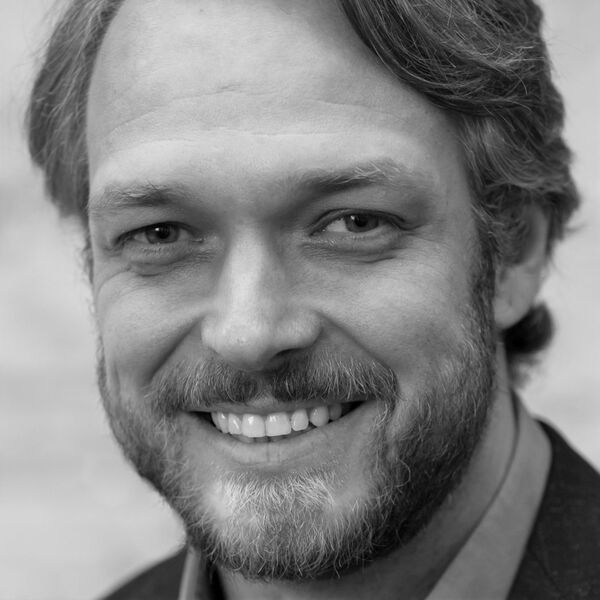Charité – Universitätsmedizin Berlin, Department of Neurology
Cognitive neuroscience
Clinical neuroscience/translation
The Neurophysics Group combines neuroscience and physics principles to gain deeper insight into human neuronal processing. Group members discovered and studied in detail ultra-high frequency oscillations in the somatosensory system (400–1200 Hz) which uniquely relate macroscopic non-invasive EEG recordings to single-unit spiking activity. Further research focuses on the development of Brain-Computer Interfaces (www.bbci.de); EEG hardware (miniaturized electrodes; low-noise amplifiers); EEG studies in stroke, epilepsy, and Parkinson’s disease; and on the analysis of speech and music processing.
Cognitive neuroscience
Clinical neuroscience/translation
Our group investigates the neural bases of metacognition of internally-generated processes, defined as those that cannot be directly related to a single event in the external world. We focus on the metacognition of motor control, motor imagery and motor intentions. We collect behavioural data in the lab and online and also do electroencephalography (EEG) and structural and functional magnetig resonance imagining (fMRI).
retired
Molecular and cellular neurobiology
Clinical neuroscience/translation
Our group is focused on understanding the molecular, cellular and physiological mechanisms regulating the dynamic assembly and function of vertebrate CNS synapses. Here we are seeking to define the cellular programs that control the dynamic exchange and degradation of pre- and postsynaptic proteins govern the formation, maintenance and integrity of synapses. We are also interested in understanding how genetic and environmental insults adversely influence these programs, leading to synapse dysfunction and/or neuronal degeneration.
retired
Clinical neuroscience/translation
Cognitive neuroscience
Our research focuses on astrocyte-related mechanisms in the pathogenesis and treatment of Huntington’s disease. Astrocyte leaflets in proximity to axodendritic release sites are involved in the recycling of neurotransmitters and control the formation, maintenance and plasticity of synaptic domains. Insufficient clearance of glutamate at synaptic sites is considered as a cause of abnormal network activity in the HD striatum. We pursue the aim to ameliorate the motor symptoms of HD by adenoviral gene transfer recovering normal astrocyte-synapse interactions in the corticostriatal pathway.
Präsident der Universität Hamburg
Cognitive neuroscience
I am interested in the cognitive neuroscience of human decision making. My research group studies basic mechanisms of perceptual, value-based, and social decision making using behavioral methods, cognitive modeling as well as human brain imaging methods (such as fMRI and EEG).
Max Delbrück Center for Molecular Medicine
Molecular and cellular neurobiology
Our goal is to understand the role of glial cells in physiology and pathology. The present research program is focused on four topics: (1) the extent of gap junction coupling within the glial network and its impact on brain function (2) the functional expression of transmitter receptors in microglia (3) the response of microglial cells to brain injury and (4) the interaction of gliomas with microglia and astrocytes.
Molecular and cellular neurobiology
Clinical neuroscience/translation
Pathophysiology of chronic pain (inflammatory, neuropathic, postoperative, arthritis): cellular and translational approaches in pain modulation; neuroimmune interactions for pain control; neuropharmacology, nanopharmacology (opioids, ion channels); nonpharmacological, noninvasive approaches for pain treatment.
Technische Universität Berlin, Faculty of Electrical Engineering and Computer Science
Cognitive neuroscience
Humboldt Universität zu Berlin, Institute for Psychology
Cognitive neuroscience
Executive control in action and cognition, functions of working memory and attention in the healthy and neurologically impaired brain, mechanisms of multitasking and its modulation. Mechanisms of non-conscious information processing and its influence on perception and action. Functional Magnetic Resonance Imagery, functional neuroanatomy of cognition and action. Cognitive and neural plasticity: training- and practice-related changes of cognitive functions; mechanisms and limitations of cognitive training. Disease-related and age-related influences on cognitive and brain functions.
Charité - Universitätsmedizin Berlin, Department of Anesthesiology and Intensive Care Medicine
Clinical neuroscience/translation
Cognitive neuroscience
Mechanisms and treatment of pain; opioid pharmacology; regulation/signalling of opioid receptors in sensory neurons; conformational dynamics of opioid receptor-ligand interactions; expression/processing of opioid peptides in inflammatory cells; nanocarrier-directed transport of opioids to injured tissues; permeability of skin, intestinal, blood-brain and perineurial barriers; clinical studies in patients with postoperative, arthritic and neuropathic pain; bioethics of pain treatment and opioid use.
Psychiatric Hospital of the University of Basel, Switzerland, Translational Psychiatry
Cognitive neuroscience
Clinical neuroscience/translation
We use fMRI, psychophysics, eye tracking and computational modelling to study human visual perception. The main research focus is on understanding the neural basis of conscious visual perception and alterations of perceptual processes in mental diseases, with a focus on schizophrenia. Current projects use the computational framework of predictive coding to investigate the role of learning and expectations in the context of perceptual ambiguity, learing and decision making. Another focus of our research is on the unconscious processing of visual information.
Charité - Universitätsmedizin Berlin, Institute of Cell and Neurobiology
Molecular and cellular neurobiology
We are interested in the cellular and molecular mechanisms underlying cell fate specification in the mouse cerebral cortex. We focus on the mechanisms controlling the generation, migration and axonal guidance of neurons of different cortical layers and areas. Our methods combine genetic, molecular and cell biological approaches to identify and characterize genes that control cortical development.
Universität Hamburg, Molecular Cell Biology Unit, Biology Department, Institute of Cell and Systems Biology of Animals
Cellular circuits and networks
Clinical neuroscience/translation
We use C. elegans as a genetic model organism to study the molecular basis of cell fate maintenance and protection in order to improve direct reprogramming of different cells into neurons. By imaging cellular reprogramming in vivo combined with visual genetic screens, we identified chromatin factors that safeguard cell fates and act as a barrier for direct reprogramming of non-neuronal cells to specific neurons. Together with our studies on the interconnection of Aging and cell fate protection our findings could help to overcome the limitations of Direct Reprogramming in other systems.
Leibniz Institut für Molekulare Pharmakologie
Clinical neuroscience/translation
Cognitive neuroscience
Our Emmy Noether research group focusses on the molecular mechanisms of synaptic transmission, which underlies brain function. Synaptic transmission is remarkably well organized and optimized for faithful and fast information processing, but why synapses are so diverse in their input/output behavior and which molecular mechanisms underlie their plastic adaptation is insufficiently understood. Using experimental and theoretical approaches we aim to identify the molecular principles of synapse specialization and plasticity.
Max Delbrück Center for Molecular Medicine
Molecular and cellular neurobiology
Clinical neuroscience/translation
We investigate orphan endocytic receptors in the nervous system to elucidate their relevance for development and functional integrity of the brain. Currently, we focus on a unique class of neuronal lipoprotein receptors, termed sortilins that emerge as major risk factors in psychiatric and neurodegenerative diseases, including Alzheimer’s disease and frontotemporal dementia. Using transgenic mouse and iPSC-derived human cell models, we study the molecular mechanisms of receptor action in brain (patho)physiology and develop therapeutic strategies for treatment of neurodegenerative diseases.
Charité - Universitätsmedizin Berlin, Department of Psychiatry and Psychotherapy, Neuropsychiatry
Molecular and cellular neurobiology
Clinical neuroscience/translation
The overall goal of our research is to systematically evaluate epigenetic and gene expression changes in Huntington’s disease (HD) to identify the most critically-disrupted regulatory processes that are responsible for the aberrant gene expression patterns in HD. These processes become candidates for therapeutic testing in HD and potentially in other central nervous system conditions with converging pathogenic mechanisms. For this goal, our lab applies a combination of genome-wide DNA sequencing technologies with mechanistic and functional approaches to in vitro and mouse models of disease.
Max Delbrück Center for Molecular Medicine Berlin, Institute for Medical Systems Biology (BIMSB)
Molecular and cellular neurobiology
Cognitive neuroscience
Our group focuses on the gene regulatory mechanisms driving early nervous system development. Using Drosophila as a model organism, we focus on how the nervous system primordium is established with in the embryo, how this primordium subdivides and specifies into territories, and how these territories bring forth distinct sets of neuroblasts, which proliferate and differentiate. We utilize a systems approach by combining genomics, transcriptomics and proteomics techniques to understand gene regulation with temporal and tissue specificity in early development.








